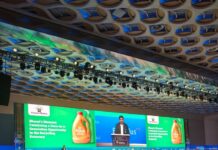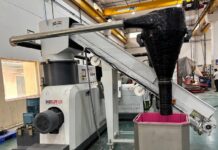Borealis and SYSTEMIQ, together with their partners from the Government of Norway, NOVA Chemicals, Borouge and Veolia, announced Nestlé as new their new strategic partner for Project STOP (Stop Ocean Plastics), a frontline initiative to prevent ocean plastic leakage in South-East Asia. Nestlé is the first food company to join the initiative.
Plastics have been a valuable contribution to the sustainable progress of communities such as protecting and extending the shelf life of food and reducing food wastage, and dramatically reducing carbon dioxide emissions in the transportation of goods and people. As an industry leader, Borealis feels the need to enhance the plastics circular economy to ensure that the societal and environmental benefits of plastics are maintained while no plastic products find their way into the environment.
“It’s extremely concerning that the lack of sustainable waste management systems and practices have contributed to the escalation of the problem of marine litter,” explains Borealis chief executive officer, Alfred Stern. “We are excited to welcome Nestle as a new strategic partner of Project STOP, and we look forward to new partners and alliances on our journey to scale up this initiative.”
“Plastic waste is an increasing threat to ocean ecosystems and communities, and it is a symptom of a linear—rather than a circular—model of consumption. STOP is designed to change this and prove that end-of-use plastic (packaging) can be collected and returned into valuable resources while providing livelihoods to many,” says Martin R. Stuchtey, founder and managing partner of SYSTEMIQ. “The momentum and early impact of Project STOP show that we are on the right track. We hope this effort, with the continued engagement of our partners, will further expand at speed and scale to make Indonesia a model for what can be achieved across Asia and the world.”
“We are very pleased to be the first food and beverage company to join Project STOP. For us, this is an important pilot, which is part of our broader vision to achieve a waste-free future, aligned with our commitment to make 100% of our packaging recyclable or reusable by 2025”, says Magdi Batato, global head of operations, Nestlé. “Over the coming months, we will take the learnings from this project to other countries where we operate in an effort to deliver ‘plastic neutrality’ in those markets.”











